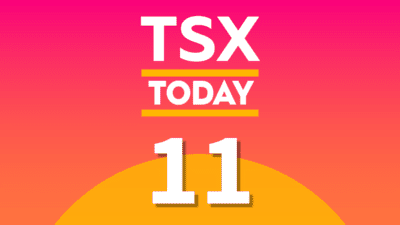Bill Larkin, CFO of Westport Innovations (TSX:WPT)(NASDAQ:WPRT), recently spoke with The Motley Fool’s Brendan Byrnes in a wide-ranging conversation about the energy industry in general and Westport in particular.
In the following interview segment, Larkin discusses the prospect of mass adoption of natural gas-powered vehicles, as well as the economics of switching. (Run time: 2:45; a transcript is provided below. If you’d like to view the entire interview, click here.)
For The Motley Fool Canada’s FREE special report on investing in a niche energy play, click here to download your copy of “Fuel Your Portfolio With This Energetic Commodity.”
Brendan Byrnes: Do you think it ever gets to a point where a meaningful number of people — us here today — are driving around in natural gas cars? And if so, how does it get there?
Bill Larkin: I think cars are a long ways off. It’s more prominent in Europe, South America. They’ve been using this technology for 30-plus years.
Number one, it’s just acceptance of the technology. There’s a lot of misinformation out there about natural gas. People think it’s more dangerous, which, in reality it’s actually safer than gasoline. Infrastructure as well; the transit, the refuse, the long-haul trucking is ideal because you can service those markets with fewer stations, versus if you wanted to expand out into the general population for automobiles, that’s a much greater investment.
When you look at our automotive business, the Ford business, we’re going after the fleets because these are all return-to-base. They can set up their own refueling infrastructure and they can take advantage of that lower-cost fuel.
Brendan: Could you talk about the economics? Why it makes sense for someone to go to natural gas? Obviously it’s much cheaper, but specifically how long would that take to pay off, overall, versus the cost of converting?
Bill: Sure. That equation is changing over time. Over the past three or four years we’ve significantly dropped the overall cost because that’s one of the biggest challenges we have, and one of the biggest barriers or hurdles that we have to get over, is there is an incremental cost.
The actual technology that physically goes on the engine, the incremental cost is not significant; it’s all in the fuel storage. That’s where the bulk of your cost is, and we are working to drive that down.
Ideally, we want to see less than a three-year payback. Some of our customers who are using our technology already are seeing paybacks quite a bit less than that. Our strategy is to continue to drive down that overall price, which will reduce the incremental price over diesel to make it more attractive, but also to reduce their payback period.
Brendan: What kind of percentage, trucking versus fleet sales, do you have right now and where would you like that to be? Does it matter?
Bill: We’d like to see growth across all our lines of businesses. We’re nowhere near to a mature market. We’re just in the early stages.
The end user is still trying to figure out, “What do we do with this? How do we service it? How do we take advantage of natural gas, and what are the economics of this?” There’s still a very steep learning process for the end users of this technology, because it is new.
Brendan Byrnes owns shares of Ford. Fool co-founder David Gardner owns shares of Ford. The Motley Fool owns shares of Ford and Westport Innovations.







